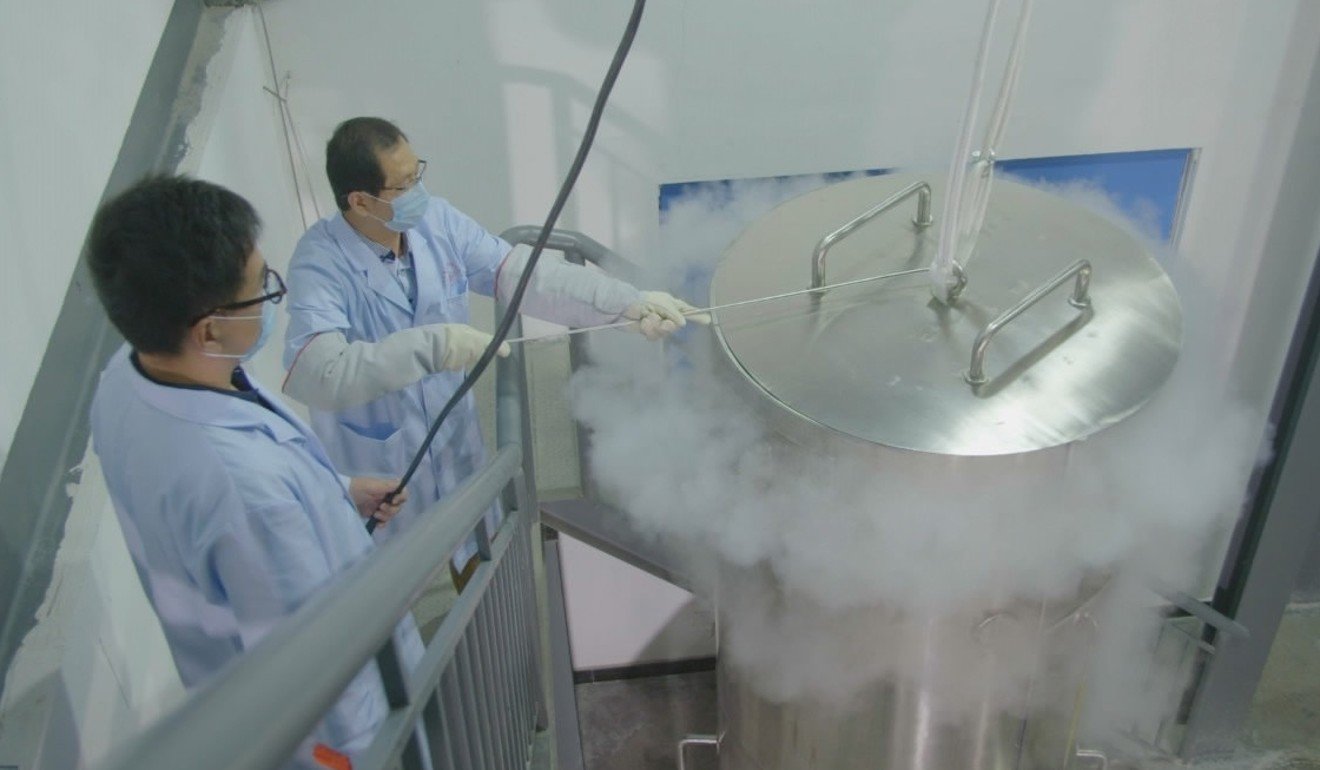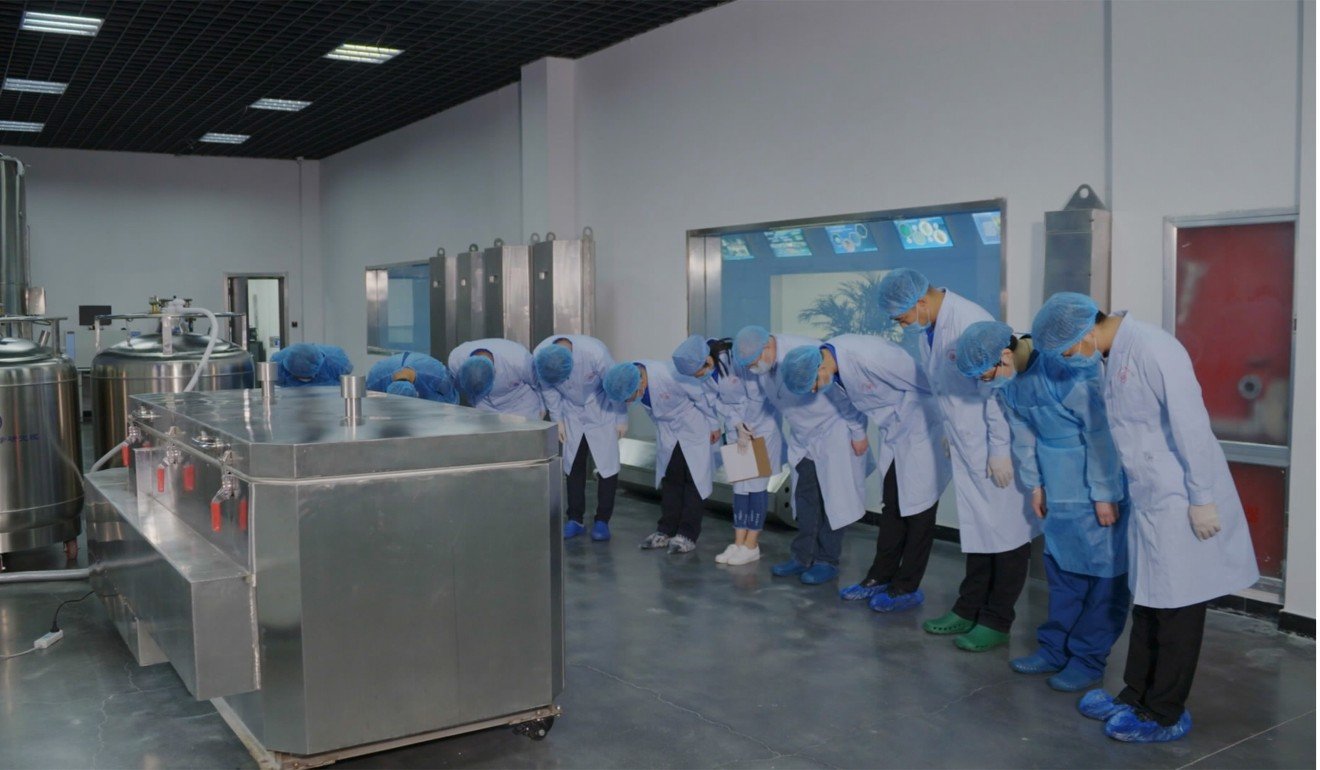
Husband of China’s first cryogenics subject keeps his love and hope frozen in time
Bereaved partner believes science will one day find a cure for the cancer that took his wife, and return her to him
It has been three months since Gui Jumin’s wife Zhan Wenlian became the first Chinese person to be cryogenically frozen. He is convinced that advances in technology and medical knowledge will one day allow the couple to be reunited.
Zhan died from lung cancer at the age of 49 on May 8 in a hospital in eastern China’s Shandong province, Science and Technology Daily reported on Monday.
Immediately after her death her body was frozen by doctors at the Shandong Yinfeng Life Sciences Research Institute. They were assisted in the 55-hour procedure by specialists from Shandong University’s Qilu Hospital and Aaron Drake from the US-based Alcor Life Extension Foundation.

Cryonics is an experimental technology that assumes that advances in medical technology will one day make it possible for frozen corpses to be resurrected. The procedure involves storing bodies in liquid nitrogen at sub-zero temperatures and using life-support equipment to maintain key bodily functions.
Gui chose to freeze Zhan’s body at Yinfeng Biological Group’s laboratory in Shandong in the hope that doctors will find a cure for lung cancer, according to the report by the official newspaper of China’s science and technology ministry.
“We have to wait until there is a cure for her disease before we wake her up, otherwise there is no point,” Gui was quoted as saying. “I believe that with new technology, [resurrection] is entirely possible.”
Zhan’s body is currently stored in a 2,000-litre tank of liquid nitrogen at a temperature of minus 196 degrees Celsius.

The belief that the frozen remains of people’s loved ones might one day be brought back to life was a “huge leap” of faith, Dr Huang Yonghua, associate professor at Shanghai Jiaotong University’s institute of refrigeration and cryogenics, told the South China Morning Post.
“Even though we are able to use technology to freeze people’s bodies, nobody has succeeded in resurrecting one,” he said. “In other words, the success of cryogenics cannot be guaranteed.”
However, it might be possible to extract DNA or other cells from a frozen person, which would make the procedure potentially beneficial for the deceased’s family members, he said.
At least 300 people have been cryogenically frozen at a handful of institutes around the world, one of them being Alcor in Arizona, in the southern United States. Chinese researchers have been studying the subject for decades.
While Zhan is the first Chinese person to have her whole body frozen, writer Du Hong became the first Chinese to be subjected to the process when her head was cryogenically frozen at the Alcor headquarters in 2015.
Both Alcor and another US firm Cryonics Institute are keen to tap into the Chinese market, where there is a strong belief that people’s bodies should remain whole for the afterlife.
“[Cryopreservation] mainly fulfils the desires or demands of the patient and their families, and there is nothing wrong with that,” Dr Liu Jing, a cryogenics expert at the University of Chinese Academy of Sciences, told the Post.
According to the Science and Technology Daily report, it costs about 2 million yuan (US$300,000) to freeze a body and a further 50,000 yuan a year to pay for top-ups of liquid nitrogen. A laboratory capable of handling such procedures costs about 5 million yuan to build.
Gui did not say how much Zhan’s procedure cost, but the report said the bulk of the funding was provided by the foundation. Yinfeng Biological Group could not be reached for comment.
According to press reports at the time, the cost of freezing Du’s head was US$120,000.
Jia Sen, head of the Yinfeng Life Sciences Research Institute, was quoted as saying the organisation spoke to about a dozen people last year who were interested in having their remains cryogenically frozen.
Gui said he planned to have his body frozen, so that he would be able to “accompany” his wife – whom he had known for 30 years – if she was one day resurrected.
“When one’s loved ones fall ill to untreatable illnesses, people will definitely not let go of their last hope,” Huang said.

